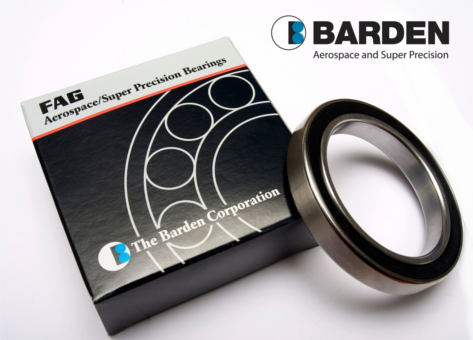Precision bearings
12.02.2019

The Barden Corporation is a part of Schaeffler Group and manufactures precision bearings for the aerospace and defense industry, as well as for vacuum pumps, medical and specialty equipment.
Today, precision bearings can work to tolerances of 1 micron, yet handling such bearings without protective gloves can place fingerprints on the bearing surfaces that are 13 microns high. Dust particles are even worse, at 25 microns, and human hairs, relatively colossal, at 76 microns.
For the bearing user, the implications of this are major changes to the way in which bearings, and precision bearings in particular, are handled. No more the traditional image of the greasy workbench with the ever-present hammer. Rather, the cleanroom type conditions that prevail in, for example, electronics production. The best approach is to regard every kind of foreign material – dust, moisture, fingerprints, solvents, lint, and dirty grease – as abrasive, corrosive, or otherwise potentially damaging to the bearing precision.
The problems with handling bearings begin the moment they are removed from their protective packages. Because of this, it is best not to remove them until they are ready for use, and then only after the work area has been effectively cleaned and prepared. Once unpacked, the bearings should only be handled with clean, dry, talc-free gloves. Here, care should be exercised as material incompatibility between the gloves and any cleaning solvents could result in contaminant films being transferred to the bearings during subsequent handling. Where the bearings are instrument types, even handling with gloves should be avoided in favour of surgical tweezers.




